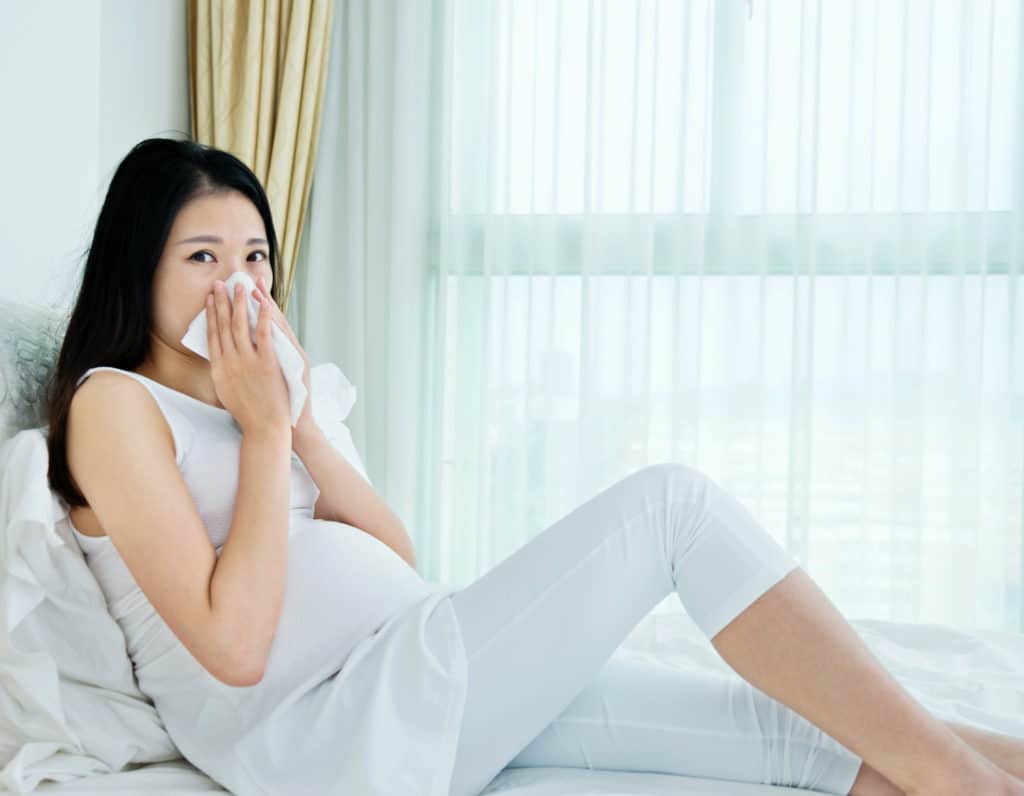
 Post Category - Health & BeautyHealth & Beauty
Post Category - Health & BeautyHealth & Beauty Post Category - ExpertsExperts - Post Category - Fitness + HealthFitness + Health
Post Category - ExpertsExperts - Post Category - Fitness + HealthFitness + HealthA nurse and public health expert (who’s also pregnant herself) answers the most urgent Coronavirus Pregnancy questions for mamas in Singapore
Being pregnant is a happy and exciting experience that should be shared with family and friends. However, the recent novel coronavirus outbreak has caused fear and uncertainty among many parents about how vulnerable groups such as pregnant women will be affected. In December, when I became pregnant with my second child, COVID-19 was not yet in the news. But as the outbreak worsened, I became more concerned with how this new virus would affect vulnerable groups such as the elderly, those with pre-existing conditions, and pregnant women.
Pregnant women are at an increased risk of acquiring certain illnesses. During pregnancy, a woman’s immune system is suppressed to a certain degree so that the body does not mount an immune response against the growing fetus. This makes the woman first, more vulnerable to becoming sick and second, more likely to experience worse symptoms than a non-pregnant woman. In 2003, during the SARS outbreak (a virus very similar to COVID-19), pregnant women were shown to have more serious symptoms than non-pregnant women. But does the same hold true for COVID-19?
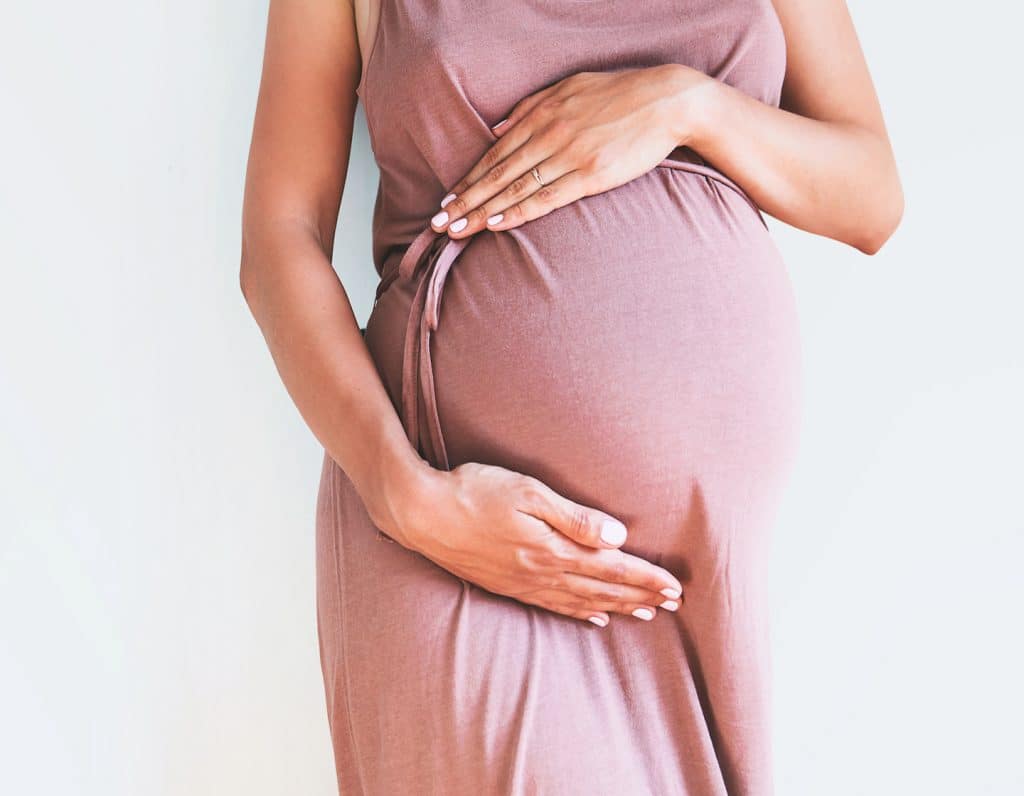
Elevated stress in pregnancy can cause high blood pressure, sleeping problems, and headaches. Being unable to explain the virus response to our children and help them understand why our lives are so different brings added stress and confusion. However, I have found in my clinical experience that the more educated you are about a disease, the less anxiety you will have and the more prepared you will be for any outcome. Parents need information from legitimate sources in order to minimize their stress around the virus and to help them feel more empowered during this worrying time.
Here are answers to a few common questions about pregnancy and COVID-19:
Am I more susceptible to getting COVID-19 because I am pregnant? If I do get the virus, will my symptoms be worse than those in non-pregnant women?
Due to the physiological changes in their immune system, pregnant women may be more susceptible to COVID-19 infection. The good news is that so far, studies show similar symptoms are seen in pregnant women as those seen in non-pregnant women: fever, cough, shortness of breath, and lymphopenia (low level of one type of white blood cell). These symptoms are not more severe in pregnant women than non-pregnant women and so far, no pregnant women have died of COVID-19 infection. However, because of the changes in their immune system, pregnant women are at higher risk for developing complications after COVID-19 infection, especially if they developed pneumonia during their illness. This is why it is especially important for pregnant women to protect themselves from infection of any kind during pregnancy.
If I do get COVID-19, can I pass the virus to my unborn baby? Can I pass it to them through breastfeeding?
So far, there is no evidence that a mother can pass the virus to their babies in utero. The virus has also not been found in the breastmilk of mothers infected with COVID-19 who have just given birth. However, if the mother still has active COVID-19 infection, she may pass it to her newborn through close contact after birth.
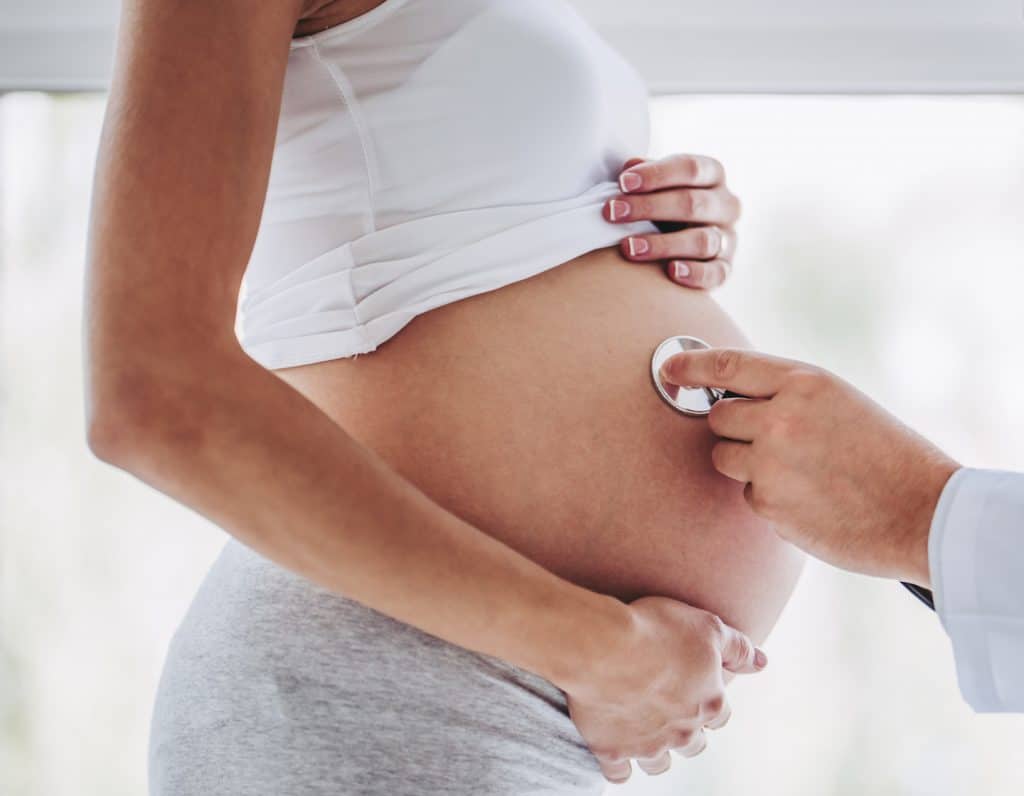
What should I do if I suspect that I have COVID-19?
If you suspect that you may be infected with the virus (you develop a fever, cough, or shortness of breath) and you are pregnant, you will need to call your doctor as soon as possible (click here for a list of local doctors with coronavirus testing abilities). They will triage your symptoms and give you instructions about what to do next. If you have advanced symptoms, such as worsening shortness of breath, go to your nearest emergency department. It is important for pregnant women to be tested as soon as possible so they can be monitored or treated early on in the disease progression in order to avoid complications.
What extra precautions should I be taking right now because I am pregnant?
Pregnant women should follow the same precautions as everyone else. The most important thing you can do to avoid being infected is to stay healthy and practice good personal hygiene. Stay healthy by taking walks in the fresh air (minding social distancing rules) and spending time with those you love. Practice good hygiene by washing your hands thoroughly with soap, avoid touching your face, and staying away from people who are sick.
Should I wear a mask to protect myself from COVID-19?
If you are healthy, you do not need to wear a mask. If you have a cold or are coughing and sneezing from allergies, you should wear a mask to avoid spreading the droplets. Pregnant women should not care for someone with COVID-19 unless it is absolutely necessary, but if you have to, you should wear a mask while in close contact with them. Wearing a mask while healthy provides very little protection against COVID-19 and can collect virus particles on its surface and, if not taken off properly, can easily transfer to your hands when you touch the mask.
Should I get the flu shot while pregnant? Will it weaken my immune system and make me even more vulnerable to COVID-19?
As stated, pregnant women are more susceptible to illnesses, especially respiratory illnesses. This includes the seasonal influenza. Pregnant women who are infected with flu are more likely to experience severe complications and could put the fetus at risk for low birth weight, preterm birth or congenital abnormalities. While it does not protect you from COVID-19, it is highly recommended that pregnant women in their second or third trimester get the flu shot to protect themselves from the flu. The flu shot does not weaken the mother’s immune system and in fact, can provide “passive protection” of the fetus by transferring flu antibodies to the fetus via the placenta. This is especially important in protecting the newborn from flu when they are first born, since they cannot receive the flu shot until after they are six months old.
Have hospital delivery protocols in Singapore changed in response to stricter Circuit Breaker measures?
There may be hospital-specific protocols for pregnant women who have active COVID who are delivering, i.e. they may be separated from their newborn for up to 14 days. Policies may also vary depending on whether a hospital is also caring for Covid-19 patients.
Maternity wards are considered “healthy” wards, meaning staff do not float between wards to work and the mums that come in are there to give birth, not to receive treatment for something. Singapore already has rules in place limiting the number of people in the room during delivery (usually just the father – your doula may not be able to be able to attend your birth). NUH’s current visitor policy during COVID can be found here. Children are not allowed to accompany patients to their appointments.
Since the government instituted circuit breaker measures on 8 April, some hospitals and individual doctor practices have informed pregnant patients that their partner will not be allowed to accompany them during delivery. For instance, husbands may be allowed for natural deliveries, but not C-Sections. Mount Elizabeth told us that husbands are allowed in the delivery room, as did Thomson, though husbands are required to register and undergo health checks beforehand. According to Johanna Wagner, President of Doulas of Singapore, for now Gleneagles and Thomson have both confirmed that doulas may be present to support during birth, but she, too, is under the impression that husbands will be unable to accompany their wives into the operating theatre for a C-Section.
Ms Julie Tay, Assistant Director of Nursing for the Delivery Suite at KKH (Singapore’s largest maternity hospital), told us that the hospital has employed stringent measures such as wearing a mask at all times in the Delivery Suite, and requiring parents, visitors and caregivers to declare their health status, travel history and contact history before accessing the hospital. KKH’s most up-to-date visitor policy can be found here.
Once again, bear in mind that the situation is completely fluid and no official policies have been announced, so it is always best to check with both your doctor and your intended hospital for the latest information; do know that there is a possibility that your partner may not be able to accompany you during birth though, mama. (Did we mention doulas can also provide remote support? Stay tuned for more on this coming soon…)
Got more questions about coronavirus and pregnancy? Check out these other online resources:
Centers for Disease Control & Prevention (US): Pregnancy and Breastfeeding Precautions
National Health Service (UK): Covid-19 Virus Infection and Pregnancy
Singapore MOH Covid-19 FAQs
 View All
View All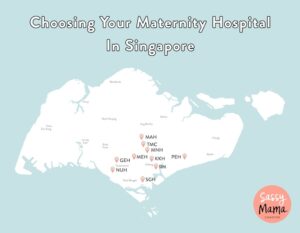
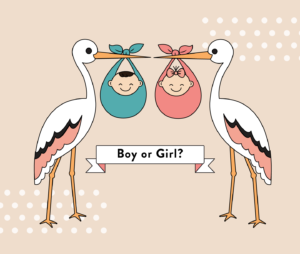

 View All
View All

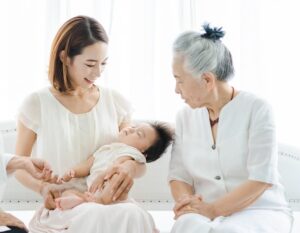
 View All
View All
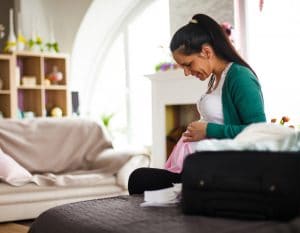
 View All
View All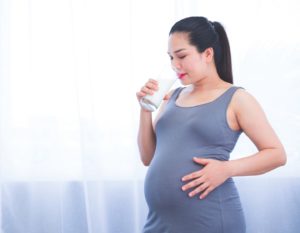
 View All
View All


 View All
View All




